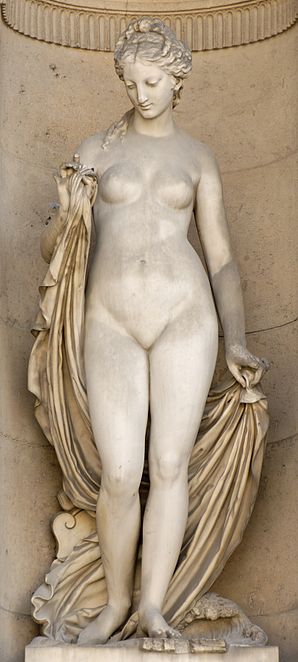from the river and lay down again in the rushes and kissed the grain-givingsoil.
Odysseus staggered from the river and lay down again in the rushes and kissed the grain-giving soil.
This reference to "grain-giving soil" reminds me of this quote:
History celebrates the battlefields whereon we meet our death, but scorns to speak of the ploughed fields whereby we thrive; it knows the names of king's bastards, but cannot tell us the origin of wheat. That is the way of human folly.<br/>—Les Merveilles de l'Instinct Chez les Insectes: Morceaux Choisis (The Wonders of Instinct in Insects: Selected Pieces) by Jean-Henri FabreJean-Henri Fabre (Librairie Ch. Delagrave (1913), page 242)
ref: quote
Culturally we often see people kneeling down and kissing the ground after long travels, but we miss the prior references and images and the underlying gratitude for why these things have become commonplace.
"Grain-giving" = "life giving" here specifically. Compare this to modern audiences see the kissing of the ground more as a psychological "homecoming" action and the link to the grain is missing.
It's possible that the phrase grain-giving was included for orality's sake to make the meter, but I would suggest that given the value of grain within the culture the poet would have figured out how to include this in any case.
By my count "grain-giving" as a modifier variously to farmland, soil, earth, land, ground, and corn land appears eight times in the text. All these final words have similar meanings. I wonder if Lattimore used poetic license to change the translation of these final words or if they were all slightly different in the Greek, but kept the meter?
This is an example of a phrase which may have been given an underlying common phrasing in daily life to highlight gratitude for the life giving qualities, but also served the bard's needs for maintaining meter. Perhaps comparing with other contemporaneous texts for this will reveal an answer?
 <small>Leucothea (1862), by Jean Jules Allasseur (1818-1903). South façade of the Cour Carrée in the Palais du Louvre.</small>
<small>Leucothea (1862), by Jean Jules Allasseur (1818-1903). South façade of the Cour Carrée in the Palais du Louvre.</small>